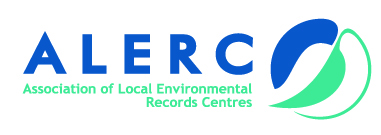
July 2nd saw the official launch of Local Record Centre accreditation, with LERCs now being invited to express their intention to apply for basic level accreditation. The accreditation system was developed by Bill Butcher of WGB Environment, and supported by Natural England, to identify a minimum level of standards that LERCs should adhere to. LERCs who can provide the satisfactory evidence to show they comply with these standards will be awarded basic level accreditation. The system is administered by the Association of Local Environmental Record Centres (ALERC) who provides the assessment and hosts the supporting documentation on its website.
The accreditation criteria were written by Bill Butcher, with input from ALERC, and owe a lot to a project by the Wildlife Trusts that identified the “essential functions” of an LERC (you can read more about these here on the NBN website). By 2011 the criteria had been used to assess two LERCs, Cambridgeshire and Peterborough Environmental Record Centre and Lincolnshire Environmental Record Centre, as a pilot. These LERCs became the first to be awarded accredited status. Whilst there were some difficulties being the first LERCs to go through this process, both of them found it beneficial. As well as being able to demonstrate that they were using best practice, and had all the right policies in place, they were also able to look at their internal relationships and procedures. Lincolnshire ERC in particular found it useful as their staff team learned a lot about each other and are now able to work together better as a result.
As well as the internal benefits to the LERC community, accreditation will also increase the confidence that the outside world has in LERCs. Those LERCs accredited by the pilot have cited greater customer confidence as another benefit of being accredited. In future, it may become very important for LERCs to be accredited in order to attract external funding. It is important to note that accreditation is also there to improve the confidence that recorders have in LERCs. It is imperative that those sending data to LERCs are assured that their data is being handled in the right way. Of course many (if not all) LERCs do this already, but accreditation means that this will be demonstrable, and there will be an official mark of assurance.
Advanced level accreditation criteria have also been drafted. These will mean that in the future LERCs are able to apply for advanced level accreditation status. Naturally, these criteria are harder to conform to, and will require LERCs to show that they deliver a more sophisticated output.
Tom Hunt – ALERC National Co-ordinator
